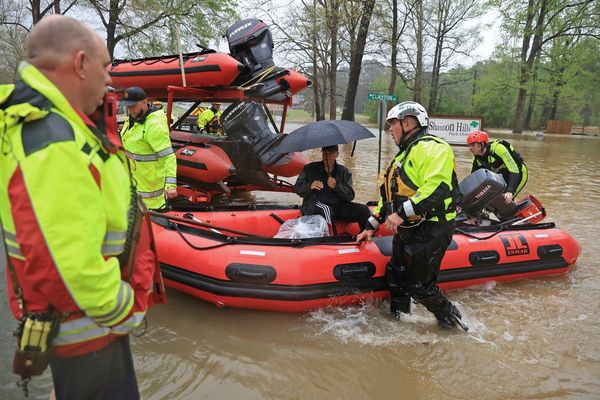HUMANITARIAN organisations have urged the international community and media to place more attention on the millions still struggling in war-torn Sudan.
This comes a week after the final UK evacuation flight left Port Sudan, concluding what the Foreign Office hailed as “the longest and largest evacuation of any Western nation”.
The operation – which drew huge attention from the UK media – evacuated more than 2,450 people on 30 flights, the vast majority of them British nationals and their dependents.
Now, international organisations and charities have stressed the need to also “keep eyes on how the conflict is affecting the Sudanese people”.
A spokesperson for the World Food Programme (WFP) said: “There are millions and millions of people that are facing hunger, that will not know where their next meal is coming from.
“I understand that publishing about evacuations of citizens of different countries is important – whether we're talking about the UK media covering UK citizens or German media covering German citizens – but the Sudanese people also have their own unique stories.”
The Foreign Office announced last week that it would provide an initial £5 million in extra funding for those fleeing the violence.
The spokesperson for WFP said while this funding was welcome – as was all other funding from the international community – “it is a drop in the ocean compared to what’s actually needed”.
They added: “We are currently looking at over 19m people who will face some form of food insecurity. And this is the highest number ever recorded in the history of Sudan.
“Of these 19m people who would face hunger, 2.5m of them are a direct result of the conflict. So we're seeing that this conflict is exacerbating what was already a very, very difficult humanitarian situation.”
James Denselow, head of conflict and humanitarian policy at Save the Children UK, said there hasn’t been a more important time to highlight the humanitarian crisis in Sudan, and particularly how it is affecting children.
He added: “Especially as the news agenda has been so focused on evacuation efforts.
“Children’s lives have been turned upside down since the fighting escalated, with many unable to get food or access clean water. The health system has been plunged into chaos, depriving even more children and their families of vital supplies.
"Even before the current escalation of violence and mass displacement, the humanitarian needs in Sudan were already dire due to years of conflict, climate-induced natural disasters, disease outbreaks and economic crisis.
“Now we’re seeing more children than ever going hungry. About a quarter of the country’s 22m children are going without enough food daily, and the humanitarian needs will only grow as the impact of the conflict takes hold.”
The conflict in Sudan is also worsening the situation in neighbouring countries, with a UN official saying more than 800,000 people may flee the war-torn country.
The UN assistant high commissioner for refugees, Raouf Mazou, said: “In consultation with all concerned governments and partners we’ve arrived at a planning figure of 815,000 people that may flee into the seven neighbouring countries.”
Christian Aid and other humanitarian agencies fear up to 120,000 people- mainly South Sudanese returnees, Sudanese refugees and third-country nationals - might cross to neighbouring South Sudan.
James Wani, Christian Aid’s country director in South Sudan, said that without the same solidarity the international community showed in Ukraine, they could simply get overwhelmed by all those needing basic essentials like food, water and medical help.
Wani said: “Many women and children are sleeping out in the open at risk from violent crime and snake bites.”
“There are close to a million South Sudanese people in Sudan. The existing aid programme for South Sudan this year is only a quarter funded and that’s before this latest influx of desperate people.”







